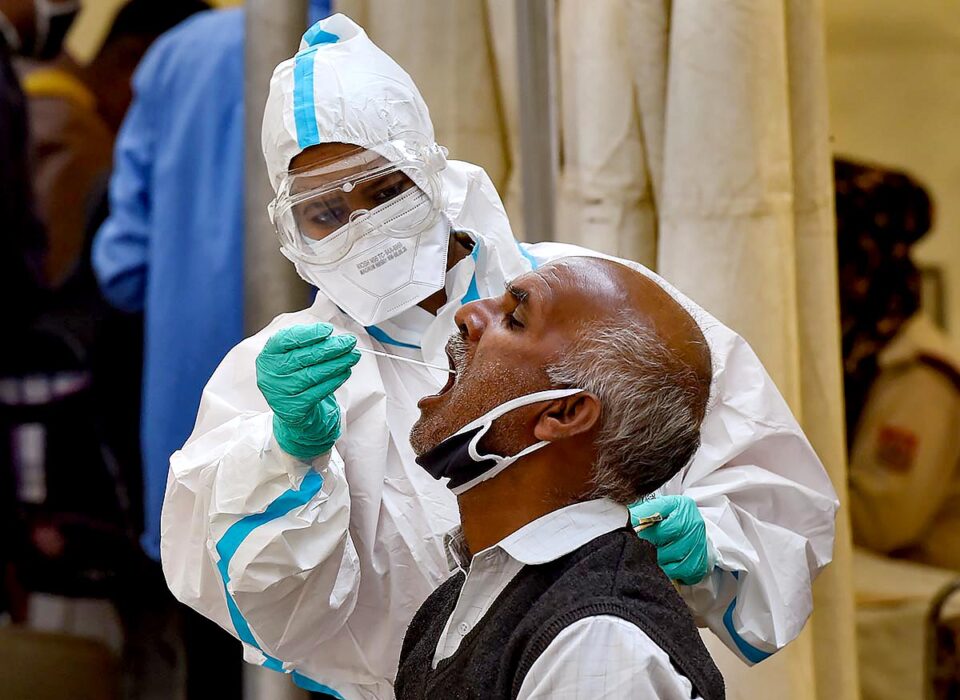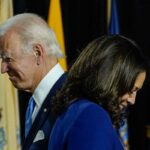Amid a spurt in coronavirus cases in some regions, the Centre on Wednesday said states and union territories can impose local restrictions like night curfew to check the spread of COVID-19 but made it clear that they will have to consult it before imposing any lockdown outside the containment zones.
While issuing guidelines for “Surveillance, Containment and Caution” for December, the ministry of home affairs said the main focus of the directive is to consolidate the substantial gains which are visible in the steady decline in the number of active cases in the country.
The guidelines said that keeping in view the recent spike in new cases in a few states and UTs, ongoing festival season and onset of winter, it is emphasised that to fully overcome the pandemic there is a need to maintain caution and strictly follow the prescribed containment strategy.
The containment strategy should be focussed on surveillance, containment and strict observance of the guidelines and SOPs issued by the MHA and the Ministry of Health, they said.
“States and UTs, based on their assessment of the situation, may impose local restrictions, with a view to contain the spread of COVID-19 such as night curfew.
“However, state and UT governments shall not impose any local lockdown (state/ district/ sub-division/City level), outside the containment zones, without prior consultation with the central government,” the guidelines said.
The guidelines will be effective from December 1 to December 31.
The ministry said that local district, police and municipal authorities shall be responsible to ensure that the prescribed containment measures are strictly followed.
State and UT governments shall ensure the accountability of the officers concerned in this regard, the ministry said.
“States and UTs are mandated to strictly enforce containment measures, SOPs on various activities and COVID-appropriate behavior and exercise caution and regulate crowds,” a home ministry statement said.
According to the guidelines, all activities have been permitted outside containment zones except for some which have been allowed with certain restrictions.
These activities are international air travel of passengers, as permitted by MHA, cinema halls and theatres, with up to 50 percent capacity, swimming pools, only for training of sports persons and exhibition halls, only for business to business purposes.
Social, religious, sports, entertainment, educational, cultural and religious gatherings in closed spaces are allowed with up to a maximum of 50 percent of the hall capacity with a ceiling of 200 persons. In open spaces, people wiil be allowed as per the size of the ground.
However, based on their assessment of the situation, state and UT governments may reduce the ceiling to 100 persons or less in closed spaces.
The guidelines were enclosed with a list of 19 SOPs that have been issued from time to time to regulate the activities that have been permitted.
These SOPs shall be strictly enforced by the authorities concerned, who shall be responsible for their strict observance, the ministry said.
There shall be no restriction on inter-state and intra-state movement of persons and goods including those for cross-land-border trade under treaties with neighbouring countries. No separate permission, approval, e-permit will be required for such movements.
According to the guidelines, sates and UTs will ensure careful demarcation of containment zones by the district authorities at the micro-level, taking into consideration the guidelines prescribed by the health ministry in this regard.
The list of containment zones will be notified on the websites by the respective district collectors and by the states and UTs and this list will also be shared with the Union Health Ministry.
Within the demarcated containment zone, containment measures, as prescribed by the health ministry shall be scrupulously followed.
Only essential activities shall be allowed in the containment zones and there shall be strict perimeter control to ensure that there is no movement of people in or out of these zones, except for medical emergencies and for maintaining the supply of essential goods and services.
There shall be intensive house-to-house surveillance by teams formed for the purpose.
Besides, testing shall be carried out as per prescribed protocol.
The listing of contacts shall be carried out in respect of all persons found positive, along with their tracking, identification, quarantine and follow up of contacts for 14 days (80 per cent of contacts to be traced in 72 hours).
Quick isolation of COVID-19 patients shall be ensured in treatment facilities and home, subject to fulfilling the home isolation guidelines, and clinical interventions, as prescribed, shall be administered, the guidelines said.
Surveillance for Influenza-Like Infections, Severe Acute Respiratory Infections cases shall be carried out in health facilities or outreach mobile units or through fever clinics in buffer zones.
Awareness shall be created in communities on COVID-19 appropriate behaviour.
The guidelines said the state and UT governments shall take all necessary measures to promote COVID-19 appropriate behaviour and to ensure strict enforcement of wearing of face masks, hand hygiene and social distancing.
To enforce the core requirement of wearing of face masks, states and UTs may consider administrative actions, including the imposition of appropriate fines on persons not wearing face masks in public and workspaces.
For observance of social distancing in crowded places, especially in markets, weekly bazaars and public transport, the health ministry will issue an SOP, which shall be strictly enforced by the states and UT.
The national directives for COVID-19 management shall continue to be followed throughout the country to enforce COVID-19 appropriate behavior.
The states and UTs also need to enforce social distancing in offices and cities.
Where the weekly case positivity rate is more than 10 percent, states and UTs concerned shall consider implementing staggered office timings and other suitable measures to reduce the number of employees attending office at the same time, thereby ensuring social distancing.
India’s COVID-19 caseload went past 92 lakh with 44,376 new cases reported on Wednesday, while the number of recoveries surged to 86.42 lakh. The death toll has reached 1,34,699 with 481 new fatalities.




